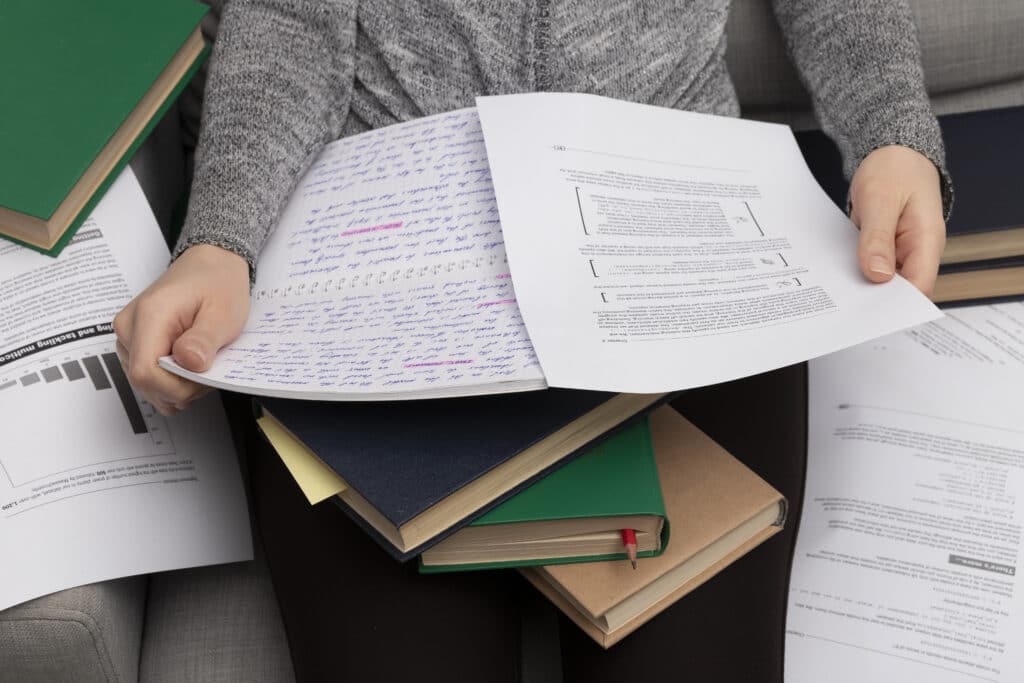
Ah, the notorious PhD dissertation defense preparation journey! It’s a path filled with both excitement and trepidation. You’ve meticulously crafted your research, delving deep into your field, and now comes the crucial moment to present it to the academic world. But what happens when the gears of your well-oiled dissertation defense preparation machine suddenly grind to a halt? Fear not! In this guide, we’ll navigate through the twists and turns that might throw your defense preparation off course. Whether it’s a sudden case of writer’s block, a shift in focus, or an unforeseen hiccup in your dissertation defense preparation outline, we’ve got you covered. So, let’s roll up our sleeves and get back on track! What to Do After Dissertation Defense? Ah, the notorious PhD dissertation defense preparation journey! It’s a path filled with both excitement and trepidation. You’ve meticulously crafted your research, delving deep into your field, and now comes the crucial moment to present it to the academic world. But what happens when the gears of your well-oiled dissertation defense preparation machine suddenly grind to a halt? Fear not! In this guide, we’ll navigate through the twists and turns that might throw your defense preparation off course. Whether it’s a sudden case of writer’s block, a shift in focus, or an unforeseen hiccup in your dissertation defense preparation outline, we’ve got you covered. So, let’s roll up our sleeves and get back on track!
Dissertation Swap With a Peer
Picture this: you and a fellow PhD buddy, each armed with your dissertation defense preparation outline, decide to embark on an intellectual adventure. It’s like a book swap, but instead of novels, you’re swapping dissertations! Why would you do something like that? Well, think of it as a mind-expanding exercise. Your buddy brings a whole different perspective to the table, coming from a completely different academic background. This swap isn’t just about feedback—it’s about shaking things up, injecting new ideas, and uncovering fresh angles you might never have thought of on your own. It’s like a brainstorming session on steroids! Plus, it’s a crash course in effective communication. You’ve got to explain your complex research to someone who isn’t knee-deep in your field. This process not only sharpens your analytical skills but also fosters a spirit of collaboration and innovation. So, think about giving your dissertation a little vacation in another researcher’s hands. Who knows what gems of insight might come out of it?
Imagine having a trusted colleague or mentor who’s on a mission to challenge you like never before. They’re not holding back; they’re throwing every tough question and criticism they can muster at you. It’s like a verbal sparring match but for your research. Now, why would you willingly subject yourself to this grilling? Well, it’s a genius way to prep for your dissertation defense. By simulating the toughest possible scenarios, you’re essentially toughening up your mental armor. You’ll emerge from this exercise battle-hardened and ready to face any curveball your defense panel might throw your way. It’s like training for a championship fight but with ideas and arguments. The ‘Opposition Advocate’ Exercise isn’t just about answering questions; it’s about refining your ability to articulate your research, defend your ideas, and come out on top. So, when the actual defense day arrives, you’ll stride in like a champion, armed with confidence and ready to own that room!
Experimental Writing Prompts in Dissertation Defense Preparation
Let’s spice up that PhD dissertation defense preparation routine with a little something called Experimental Writing Prompts! Picture this: instead of your usual academic jargon, you’re trying out wild, out-of-the-box writing styles. Think science fiction novel or a heated debate between historical figures, all in the context of your research. It’s like a creative writing exercise on academic steroids! Now, why would you do such a thing? Well, it’s all about breaking free from the constraints of formal writing. These prompts encourage you to explore new angles and approaches to your research, infusing fresh energy and creativity into your work. It’s a bit like giving your brain a shot of espresso when it’s stuck in a writing rut. Plus, it keeps things fun and engaging, which let’s face it, is a lifesaver during the marathon that is dissertation writing. So, the next time you’re feeling stuck, grab an experimental writing prompt and let your creativity run wild. Who knows what genius insights might emerge from this playful approach?
Common Questions to Prepare for The PhD Defense PreparationerailCommon Questions to Prepare for The PhD Defense Preparation
1. Can you summarize your research in a few sentences?
– Absolutely! My research focuses on [brief overview of your topic]. I aim to [mention your main objectives] by [briefly explain your methodology]. The findings reveal [highlight key discoveries] which contribute to [mention broader implications].
2. What motivated you to choose this topic?
– Great question! I was drawn to this topic because [share personal connection or academic interest]. I saw a gap in the existing literature and believed that delving into this area could offer valuable insights into [mention potential contributions].
3. What were the main challenges you encountered during your research?
– Oh, there were a few hurdles along the way! One significant challenge was [describe a specific obstacle]. To address this, I [explain how you overcame it]. This experience taught me [mention lessons learned].
What to Do If The Students Are Stuck With Their PhD Defense Presentation?
No need to panic if you’re feeling stuck with your PhD defense presentation! First, take a deep breath and step away from your work for a little while. Sometimes all you need is a new viewpoint. Then, consider seeking feedback from trusted peers, advisors, or mentors. They can offer valuable insights and help you pinpoint areas that might need improvement. Additionally, rehearse your presentation multiple times to build confidence and ensure a smooth delivery. Don’t hesitate to reach out to fellow students who have successfully defended their PhDs for tips and advice. Lastly, remember that it’s okay to ask for help or clarification if you’re struggling with a particular aspect. You’ve put in the effort and are well-prepared. You’ve got this!
Final Thoughts
In the unpredictable journey of PhD dissertation defense preparation, derailments are not uncommon. However, armed with unconventional strategies, one can swiftly realign their course. Remember, a snag in your dissertation defense preparation doesn’t signify defeat, but rather an opportunity for growth and innovation. By incorporating techniques like the ‘Opposition Advocate’ Exercise, Experimental Writing Prompts, and Creative Visualization Sessions, you breathe new life into your defense preparation. These methods not only stimulate creativity but also bolster your ability to face tough questions and articulate your research with confidence. Additionally, initiatives such as a Dissertation Swap with a Peer offer a fresh perspective, enriching your work with cross-disciplinary insights. These unorthodox approaches, combined with a well-structured dissertation defense preparation outline, can be the key to not only getting back on track but surpassing your own expectations come defense day.
Now, at PhD Thesis, we understand the twists and turns that can arise during your defense preparation. That is why we are here to lend a helpful hand. Our team of experienced professionals is well-versed in the nuances of academic writing and defense preparation. Whether you need guidance on outlining your defense preparation or want tailored strategies to overcome specific hurdles, we’ve got your back. With our personalized support, you’ll not only navigate the derailments but emerge stronger and more confident in your defense preparation. So, let’s work together to turn those derailments into stepping stones toward a successful defense!
FAQ Questions
1. How to Prepare for Dissertation Defense?
To ace your PhD dissertation defense, thorough PhD dissertation defense preparation is key. Start by crafting a comprehensive dissertation defense preparation outline, ensuring it encompasses the introduction, methodology, findings, and a robust conclusion. Practice effective communication of your research and anticipate potential questions. Engage in exercises like the ‘Opposition Advocate’ to sharpen your responses. Seek peer input through methods like a Dissertation Swap to gain fresh perspectives. This diligent approach ensures you’re well-equipped to confidently present and defend your research.
2. What is a PhD Dissertation Defense?
What Should be Included in a PhD Defense? A PhD dissertation defense is a pivotal academic event where a doctoral candidate presents and defends their original research before a panel of experts. It marks the culmination of extensive research and signifies the candidate’s readiness to contribute significantly to their field. Effective dissertation defense preparation is crucial, involving a meticulous outline that covers key aspects of the research.
3. What Should be Included in a PhD Defense?
A comprehensive PhD defense should incorporate crucial elements. Begin with a well-structured dissertation defense preparation outline encompassing the introduction, methodology, findings, and a strong conclusion. Ensure your defense demonstrates a profound understanding of your research, and be prepared to respond to inquiries from the evaluation panel. Techniques like the ‘Opposition Advocate’ exercise can help refine your responses and strengthen your defense.
4. How Do You Start an Outline Defense?
Embarking on a dissertation defense preparation outline begins with identifying the essential components. Begin with a clear introduction, followed by a detailed methodology section outlining your research approach. Present your findings in a logical sequence, and conclude with a concise yet impactful summary. This outline serves as the backbone of your defense, providing a structured framework for a compelling presentation.
5. What to Do After Dissertation Defense?
Post-dissertation defense, take a moment to acknowledge your achievement. Reflect on the invaluable insights gained during the PhD dissertation defense preparation process. Consider revising your research based on the feedback received. Celebrate your accomplishments, and use this milestone as a stepping stone to further academic pursuits, contributing meaningfully to your field of study.

